Shaun King Calls for Nationwide Economic Boycott to Protest Racial Inequality
The prominent activist and journalist cites the Montgomery bus boycott as an example the nation needs to follow.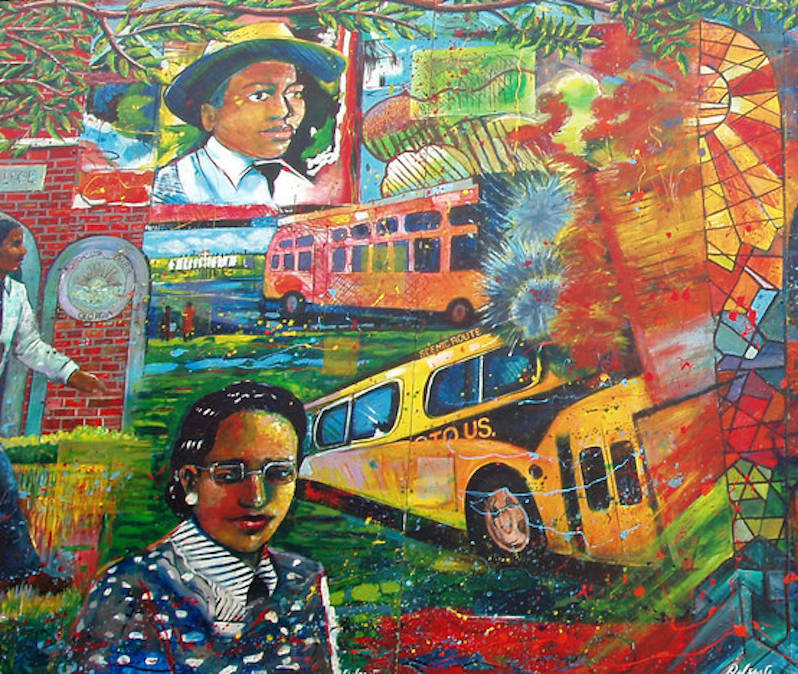
A mural in Alabama pays tribute to the Montgomery bus boycott. (damian entwistle / CC 2.0)
During the past week, thousands around the country have taken to the streets to protest another spate of police killing black citizens. As peaceful protests ensued in Tulsa, Okla., incidents turned violent in Charlotte, N.C. Author and activist Shaun King wrote of these protests—and the deaths of African-American men that led to the protests—and touched upon the anger and grief felt throughout these communities.
“[P]eople are either growing numb, hopeless, desperate, angry or some variation of all four,” he wrote on Tuesday in the New York Daily News. “It appears that the United States seems fully intent on pushing black people far past our breaking point.”
But King offers a solution. In his Daily News piece on Thursday, King passionately implores Americans to refer to historical precedents to combat systemic racism. “It is time, brothers and sisters, for us to make a unified national pivot,” he writes. “Our protests, of course, must continue, but we must add a critical new layer on top of them.”
The solution? A nationwide economic boycott, similar to the Montgomery bus boycott led by Dr. Martin Luther King Jr. from 1955 to 1956. Shaun King explains:
It is time that we organize a passionate, committed, economic boycott. It must be painful. It must be unified. And we must continue with it until we see change. This country is clearly willing to continue killing unarmed men, women and children without ever making any serious efforts at reforms. This economic boycott can change that.
Thursday’s piece is filled with an optimism sorely needed during the current crisis over racial inequality, but King also notes that opponents will urge for more peaceful—and ineffective—forms of resistance. “Of course, they will tell us that we should be more like Dr. King,” he writes, “but you and I know that the caricature of King they speak of is but a hollow shell created in their own image.”
An economic boycott, King believes, will encourage change in ways that street demonstrations have not been able to, although the last several years of protests have succeeded in bringing together a large coalition of Americans determined to generate a more equal society.
“[W]e have built consensus among tens of millions of people in America who are fully fed up with police brutality and demand a better way,” he says.
Since Thursday’s article was published, the Facebook post on the piece has generated hundreds of comments. King also has released a detailed list of propositions for addressing systemic police brutality.
—Posted by Emma Niles
Independent journalism is under threat and overshadowed by heavily funded mainstream media.
You can help level the playing field. Become a member.
Your tax-deductible contribution keeps us digging beneath the headlines to give you thought-provoking, investigative reporting and analysis that unearths what's really happening- without compromise.
Give today to support our courageous, independent journalists.
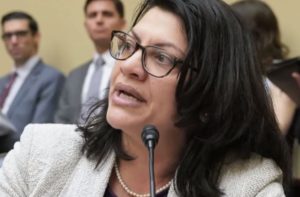
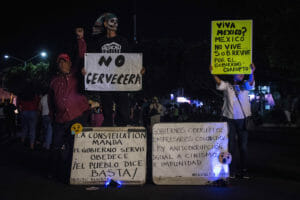
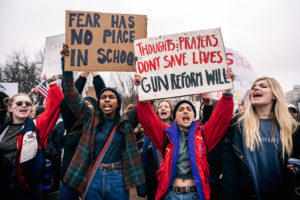
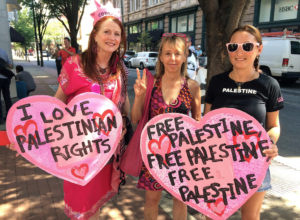
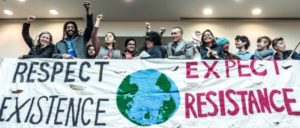

You need to be a supporter to comment.
There are currently no responses to this article.
Be the first to respond.